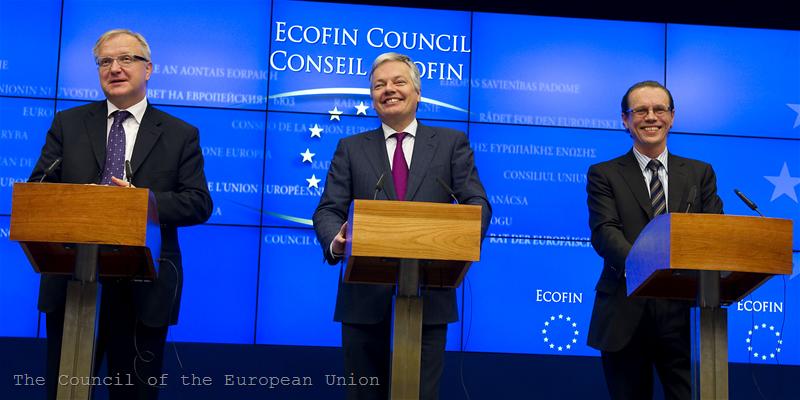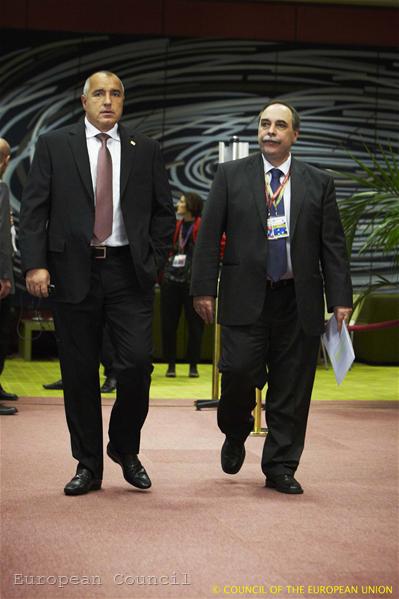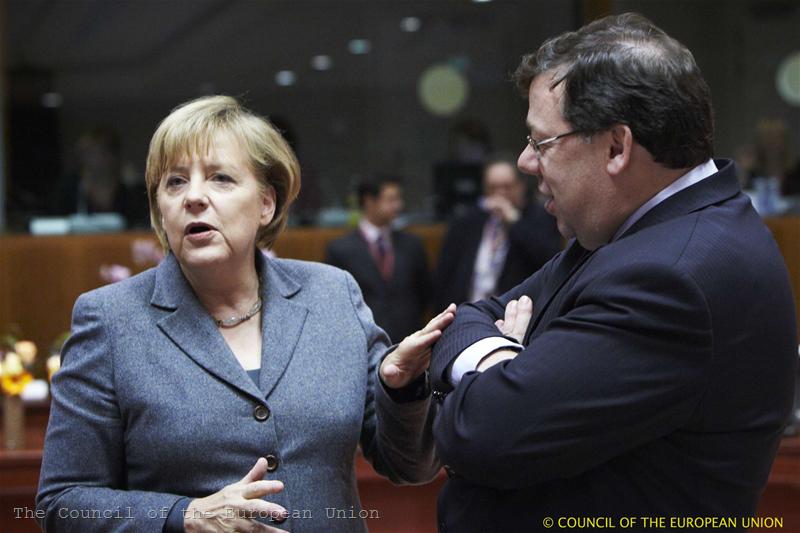A German solo before the start of the European choir on October 28
Angel Shoilev, Ralitsa Kovacheva, October 28, 2010
 Only a day before the European Council in Brussels the German chancellor Angela Merkel made a 30-minute flag speech in the Bundestag (the German Parliament), in which she explained the Franco-German plans for reforms of the monetary union. Just days before the Council Germany and France came up with a proposal of their own for the European economic governance, focusing on the attitude towards countries that have irresponsible to their partners in the eurozone fiscal and economic policy. Angela Merkel announced before the Bundestag her intentions to insist for changes to the Lisbon Treaty, to defend that position with determination, in spite of the resistance: the preparation and the entry into force of the Lisbon Treaty took the EU almost 10 years.
Only a day before the European Council in Brussels the German chancellor Angela Merkel made a 30-minute flag speech in the Bundestag (the German Parliament), in which she explained the Franco-German plans for reforms of the monetary union. Just days before the Council Germany and France came up with a proposal of their own for the European economic governance, focusing on the attitude towards countries that have irresponsible to their partners in the eurozone fiscal and economic policy. Angela Merkel announced before the Bundestag her intentions to insist for changes to the Lisbon Treaty, to defend that position with determination, in spite of the resistance: the preparation and the entry into force of the Lisbon Treaty took the EU almost 10 years.
In order to avoid future crises both governments want amendments to the European Treaties. The aim is an effective crisis mechanism to be created if in the future more countries would face the need of saving, Merkel said in her political declaration.
Deprivation of voting rights in the European Council
Together with France Germany would insist for tightening of the stability rules of the Economic and Monetary Union so that the indebted countries would be held under close surveillance and, if necessary, to ensure intervention. With continuous violations of the Stability Pact, it would be right this to lead to temporary deprivation of voting rights of the country, the German chancellor also explained.
Deprivation of voting rights in the European Council (where the national governments are represented) is a sensitive issue, Merkel admitted. "But if a member state rejects this, the onus is on it to convince us that if it seriously contravenes the joint economic principles it will do more than simply hope for the best".
Even with the toughest rules for stability, a 100 per cent crisis prevention cannot be guaranteed. This is why Germany and France call for a new legal framework for systemic crisis management. "This is the only way to underpin the stability of the euro zone in the long term", the German chancellor pointed out. This is why Treaty changes are inevitable: "This is the only way to put in place a democratically legitimated crisis management system that will be of value in the long term".
No extension of the current rescue fund
"Germany is not prepared to simply extend this fund", the chancellor said in the Bundestag. Defence is a good tactics but not a long-term instrument and it also does send wrong signals to the future, thus indirectly boosting expectations that in times of a crisis the Community would bail more countries out, Merkel explained further.
This is why the chancellor wants a transparent and comprehensive method to be introduced for crisis management that would include private creditors as well. Helping a partner country should become necessary only in absolutely last resort cases, she insisted.
G20: continuing work on financial market reforms
The German chancellor also spoke in the Bundestag about the upcoming summit of the twenty group of countries in Seoul. She announced that at the summit of the 20 leading industrialised and developing countries Germany would work for finding mechanisms for tackling threatened by a crisis financial institutions. Germany will continue to support taxation of financial transactions, even if it is introduced in Europe only as being the only possibility.
 | © The Council of the European Union
| © The Council of the European Union | © European Council
| © European Council | © The Council of the European Union
| © The Council of the European Union